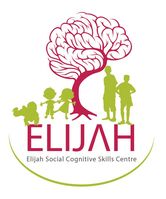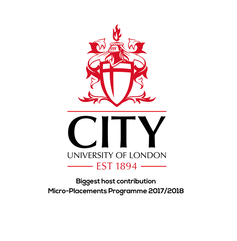The Elijah Centre is a specialist provision for children, toddler and adolescents ,who display mild social communication difficulties, social sensory sensitivities , ADD and ADHD. Typically, these individuals display cognitive delays, challenging behaviours, emotional and self-regulation challenges. PROSCIG© - Social Cognitive Intervention Program in peer groups is therapy which is taken place in Groups of Pairs in Social Networks ,with a therapist (Elijah, 2013). The program is based in Northwest and Central London, and implements a social-cognitive approach, with an individualised and holistic framework involving all areas of child development. The PROSCIG© program is an approved scientific, clinical and educational program (Validated in 2013) which consists of the following three modules: social solving problem; social perception and self-regulation.
What is PROSCIG©
PROSCIG is a unique intervention made up of a series of structured activities and exercised designed to improve a child’s social communication skills.
What is PROSCIG©
PROSCIG is a unique intervention made up of a series of structured activities and exercised designed to improve a child’s social communication skills.
PROSCIG© is a generalist intervention program, divided into three modules of socio-cognitive collaborative learning:
Social Perception
Social Problems Solving Skills
Self-Monitoring/Regulation
What makes PROSCIG© unique is it’s aim to create new strategies for social problem solving, concerning such problems that arise in the educational and home and community environment, as well as reconfigure social roles, social identity, self-esteem and self-confidence of these individuals in a social emotional process, establishing a new social identity of the group, which will resize self-confidence, assertiveness, self-esteem and even raise the level of cooperation within the group, another unique aim is that PROSCIG © works on building and exercising the plasticity of the individual brain and breaking the paradigm of the brain, creating neurone connections as they learn new things and concepts. PROSCIG © reproduces changes in psychosocial behaviour that are durable and strengthens the psychosocial interaction.
Another unique point for PROSCIG ©, is that it takes into account cultural issues, PROSCIG © targets skills which are selected according to what is culturally appropriate. Group leaders aim to maximize the participation of all group members and including targeting specific behaviours in young people, and to develop their own thinking rationale for cognitive skills. In order to ensure a long lasting improvement in psychosocial functioning, for some people a few weeks of intervention may not be enough, in these cases the training of social skills is prolonged for months. In order to produce changes, intensifying the sessions will facilitate the maintenance of learning, In som children the social skills program (PROSCIG ©) should be conducted in an uninterrupted manner day by day, and not limited and brief clinical sessions.
Teachers, parents and peers should play a role in psycho-social skills training both inside and outside the intervention sessions, in order to provide cues to reinforce psychosocial responses.
The most important aim of PROSCIG © Is to empower families and individuals, to fulfil their full potential in life.
Social Perception
Social Problems Solving Skills
Self-Monitoring/Regulation
- Social Perception: concerns the ability to absorb , understand and correctly interpret the meaning of information that comes from the psychosocial context and the interaction with peers; it is the basis of social interactions and consists of forming impressions about others; how we perceive situations is related to social groups of the individual
- Social Problem Solving : consists in the identification of the existence and nature of a psychosocial problem, in determining objectives in each situation, creating alternative possible responses within the group, the prevention of possible consequences, choosing the response likely to lead to positive results and in the planning and execution of the chosen response
- Self-Regulation: Self-regulation is an active process by which a person’s impulses are managed and controlled by creating techniques for impulse control, behaviours and motivation, to achieve these goals.
- Early intervention, children from the ages of 2-5 .
- Children who are 5-11 years.
- Transition from primary to high school – high school to college .
- Teenagers as well as adolescents.
- Young adults.
What makes PROSCIG© unique is it’s aim to create new strategies for social problem solving, concerning such problems that arise in the educational and home and community environment, as well as reconfigure social roles, social identity, self-esteem and self-confidence of these individuals in a social emotional process, establishing a new social identity of the group, which will resize self-confidence, assertiveness, self-esteem and even raise the level of cooperation within the group, another unique aim is that PROSCIG © works on building and exercising the plasticity of the individual brain and breaking the paradigm of the brain, creating neurone connections as they learn new things and concepts. PROSCIG © reproduces changes in psychosocial behaviour that are durable and strengthens the psychosocial interaction.
Another unique point for PROSCIG ©, is that it takes into account cultural issues, PROSCIG © targets skills which are selected according to what is culturally appropriate. Group leaders aim to maximize the participation of all group members and including targeting specific behaviours in young people, and to develop their own thinking rationale for cognitive skills. In order to ensure a long lasting improvement in psychosocial functioning, for some people a few weeks of intervention may not be enough, in these cases the training of social skills is prolonged for months. In order to produce changes, intensifying the sessions will facilitate the maintenance of learning, In som children the social skills program (PROSCIG ©) should be conducted in an uninterrupted manner day by day, and not limited and brief clinical sessions.
Teachers, parents and peers should play a role in psycho-social skills training both inside and outside the intervention sessions, in order to provide cues to reinforce psychosocial responses.
The most important aim of PROSCIG © Is to empower families and individuals, to fulfil their full potential in life.





